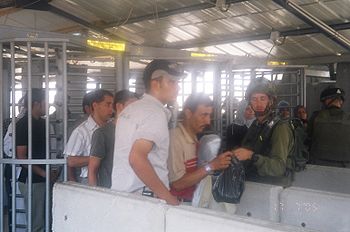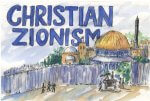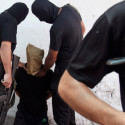Thirty-one aid, faith, human rights, and development organizations are calling on world leaders to take urgent action to halt ongoing demolitions and hold the government of Israel accountable for the wanton destruction of Palestinian property and of projects funded by international aid in the occupied West Bank. Surge in destruction reported
By Edith Garwood
Amnesty International Report — During a surge in demolitions this week, the Israeli army demolished at least 63 homes and basic structures across 10 Palestinian communities in Area C, the 60 percent of the West Bank where Israel has maintained full military and civil control. Among the demolished structures were 12 basic humanitarian necessities, including a solar panel, a portable latrine, animal pens, and tents financed by the European Union.
The organizations said that international donors should seek to recover the financial costs of their destroyed structures and commit to resupplying the aid. In May 2012, the European Union stated publicly that it expected the government of Israel to protect its aid in Area C. Since then, hundreds of aid items funded by European and other donors have been demolished or seized. At least 356 structures, including 81 internationally funded aid items, have already been demolished in Area C this year.

All told, demolitions this week rendered 132 people homeless, including 82 children, accounting for a quarter of the displacement from demolitions in 2015 and marking the highest number of people rendered homeless from demolitions in nearly three years.
“Demolitions are pushing Palestinians to the brink and destroying prospects for peace. Instead of developing their communities and their livelihood, thousands of Palestinians in Area C are living in misery with the constant fear that tomorrow, their home could be gone and they could be forced to leave their land,” said Catherine Essoyan, Oxfam’s Regional Chair.
These demolitions are being carried out against the backdrop of the government of Israel’s plan to ‘relocate’ 7,000 Palestinians living in 46 communities throughout Area C. The international community has repeatedly called on the government of Israel to cancel the ‘relocation’ plan. The plan affects Bedouin and herding communities in the central parts of the West Bank, including the E1 area around Jerusalem, where the government of Israel plans to expand settlements, which are illegal under international law. UN Secretary-General Ban Ki-Moon among others has said if implemented, Israel’s proposed ‘relocation’ plan would amount to forced transfer.
Forced transfer and wanton destruction of private property both constitute grave breaches of the Fourth Geneva Convention. Such a breach carries specific third state obligations, as well as individual criminal liability, and is codified as a war crime.
Courtesy of Maan News Agency www.MaanNews.net“The rapid increase in demolitions shows that we must move beyond words towards concerted action to stop these violations of international law. Grave breaches of international humanitarian law could soon become the norm. We will not achieve a just and durable solution to the conflict without first ensuring respect for international humanitarian law,” said Tony Laurance, Chief Executive Officer of Medical Aid for Palestinians.
Some of the communities affected by the ‘relocation’ plan were amongst the hardest hit by the demolitions this week, raising concern that the government of Israel is using coercive tactics to squeeze Palestinian residents out. But, Palestinian communities outside the plan are also facing a similar fate. The Palestinian village of Susiya, which is not one of the communities within the plan, could additionally be facing mass demolition and forced transfer in the coming weeks.
The government of Israel justifies demolitions and transfer of communities in Area C, part of the internationally recognized occupied Palestinian territory, on the grounds that they lack Israeli planning and building permits, which are routinely denied to Palestinians. The inability to build and develop makes Palestinians vulnerable to home demolition, displacement, and forcible transfer and limits their ability to realize their rights to water, adequate housing, education, health, and dignified livelihoods.
Local and international aid organizations have faced increasingly severe restrictions from the government of Israel when responding to these needs, in violation of Israel’s obligation to facilitate the effective delivery of aid.
The organizations are:
1. ActionAid
2. Action Against Hunger
3. Amnesty International
4. Asamblea de Cooperacion por la Paz (ACPP)
5. Broederlijk Delen
6. Christian Aid
7. Church of Sweden
8. COSPE
9. DanChurchAid
10.Diakonia
11.EAPPI UK and Ireland
12.Embrace the Middle East
13.Gruppo di Volontariato Civile
14.Heinrich Boll Foundation
15.Lawyers for Palestinian Human Rights
16.Medical Aid for Palestinians (MAP – UK)
17.Oxfam
18.Overseas
19.Open Shuhada Street South Africa
20.Norwegian Church Aid
21.Norwegian People’s Aid
22.Palestine Solidarity Association of Sweden
23.Pax Christi Flanders
24.Pax Christi International
25.Premiere Urgence Aide Medicale Internationale (PU-AMI)
26.Quaker Peace and Social Witness (QPSW)
27.Secours Islamique France
28.The Lutheran World Federation
29.Trócaire
30.Vento di Terra
31.WeEffect
Notes to editors:
- The figures on demolitions and displacement are sourced from UN OCHA’s Demolitions Database, last accessed 7:23 PM, 20 August 2015. The demolitions this week in Area C occurred on 17, 18, and 20 of August.
- Four of the 10 Palestinian communities affected by the recent demolitions—Az’Zaayyem, Khan Al Ahmar-Abu Falah, Bir Al Maskoob, and Wadi Sneysel—are located within the E1 and are additionally amongst the 46 Palestinian Bedouin and herding communities known to be slated for the Israeli “relocation” plan. A total of 22 structures were demolished in these four communities on 17 August, displacing 78 people.
- The ‘relocation’ plan, published by Israel in September 2014, is also commonly referred to as “The Nuweimeh Plan.” Implementation of the plan would see around 7,000 Palestinians from 46 communities, around 23 located within the E1 area, transferred to three sites approved by the government of Israel: Nuweimeh, Fasayel, and Al Jabal. For reference to the quote by the Secretary General please see para. 37 in http://bit.ly/1gYgu8l and for more general information please see http://bit.ly/1HXvSHM
- The Israeli proposed E1 master plan (Plan No. 420/4), approved in 1999, would be implemented through a series of sub-plans aiming to link the settlement of Ma’ale Adumim to Jerusalem and to a wider Ma’ale Adumim settlement block by connecting it with the settlements of Mishor Adumim and Kfar Adumim through a series of roads and housing initiatives.
- The Israeli Civil Administration (ICA), the body that controls planning and zoning in Area C, has denied up to 94 percent of Palestinian applications for building permits in recent years. The ICA has issued over 12,500 demolition orders in Area C for Palestinian homes, schools, barns, cisterns, traditional bread ovens (tabouns). This same body regularly approves building permits, zoning, and land allocation land towards the development of illegal settlement expansion in Area C. For more information please see http://bit.ly/1J66dAA


- Israelisnipers shooting and killing hospital workers in Gaza - December 11, 2023
- CAIR Condemns Israeli Executions of Wounded, Unarmed Palestinian in West Bank - December 11, 2023
- Arab and Muslim American voters face a “simple choice” between Biden’s inhumanity and Trump’s edgy politics - December 9, 2023























